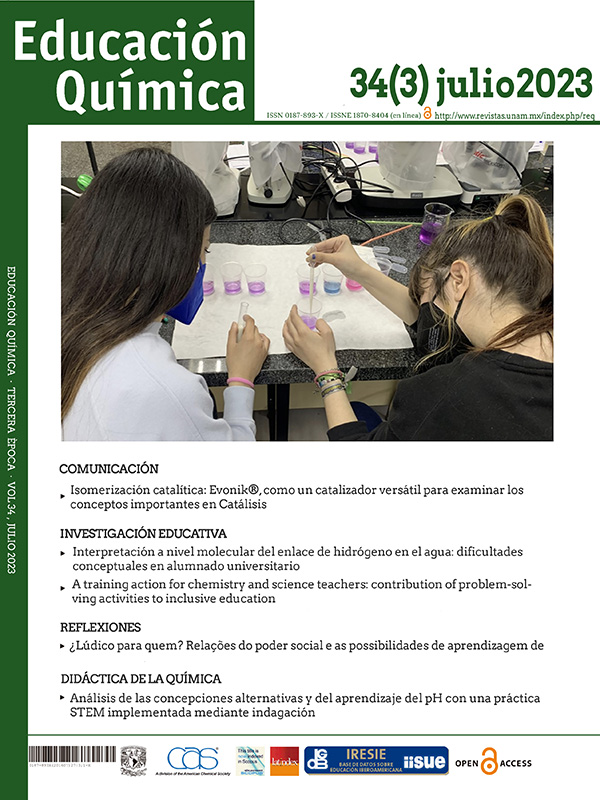Biodiesel production as a model of approach to natural sciences
Main Article Content
Abstract
Contextualizing chemistry laboratories, relating them to daily life situations and disciplinary contents, motivates to awaken scientific vocations. The objective of the work was to promote interest in exact sciences and environmental care, through the active participation of students in the reuse of vegetable oil as a laboratory model in context. The origin of vegetable oils, the health implications of the repeated reuse of vegetable oil, the possible forms of transformation into new products, transesterification, and the manipulation of chemical reagents were studied during the workshops. Recipients were high school students from 6 different institutions in the province of Misiones (Argentina), reaching a total of 45 students between 17 and 21 years old. Workshops were led by students, graduates and the directors of the project. The methodology of the activity consisted of a practical experience and evaluation of the intervention. The use of a socio-environmental context for the teaching of chemistry, generated awareness about environmental care; and new knowledge in relation to chemistry, by making use of the transesterification reaction to obtain biodiesel.
ve of the work was to promote interest in exact sciences and environmental care through the active participation of students in the reuse of vegetable oil. The origin of vegetable oils, the implications on health of the repeated reuse of vegetable oil, the possible forms of transformation into new products, transesterification, manipulation of chemical reagents and difference in density were studied. Recipients were high school students from 6 different institutions of the province of Misiones (Argentina), amounting to a total of 45 students between 17 to 21 years old. The methodology of the activity consisted of a practical experience and evaluation of the intervention. The use of a socio-environmental context for the teaching of chemistry, allowed the participants of the workshops to demonstrate the implication of chemistry in the processes of daily life.
Article Details
Citas en Dimensions Service

Educación Química por Universidad Nacional Autónoma de México se distribuye bajo una Licencia Creative Commons Atribución-NoComercial-SinDerivar 4.0 Internacional.
Basada en una obra en http://www.revistas.unam.mx/index.php/req.




